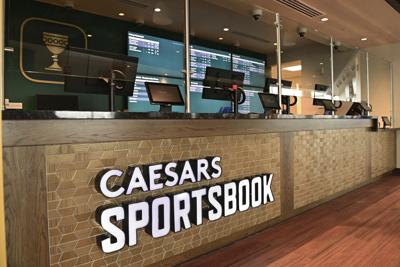With an unmistakable air of virtuous self-denial, LSU has announced it is ending its partnership with Caesars Sportsbook.
The most abject of apologies would be more like it. The supposedly august seat of learning commonly known as Louisiana's “flagship university” should never have been in bed with a bookie in the first place. LSU, moreover, did not sever the connection because it had seen the error of its sleazy ways. A new state law left it no choice.
Not that state law has always been observed in the unholy alliance between universities and betting firms. After LSU teamed up with Caesars in 2021, for instance, a mass email aimed at drumming up business went out to students, most of whom were under the minimum legal age of 21.
Emailing the underaged was a “mistake,” Caesars said. Nobody would doubt the veracity of Caesars, of course; it's just lucky that this mistake had a positive effect on its bottom line.
Jim Henderson, University of Louisiana System president, noted that people would wonder “why we would be signing onto a marketing agreement when a majority of the market we are sharing it with are not legal participants in the gaming industry.” Henderson called this “cognitive dissonance,” which is what they call flapdoodle in the groves of academe.
Caesars certainly exacted a heavy price for cutting LSU in on the gambling moolah. There is plenty of it on campus. A recent survey of 3,527 students aged between 18 and 22 found that 58% had bet with sportsbooks.
“Broadcast and digital sponsorship rights” were also included in a host of concessions hammered out in the deal between LSU and Caesars, so there was plenty of money flying around — enough to make even the American Gaming Association uneasy. In March the association adopted stringent new restrictions, which have now been statutorily enshrined in Louisiana.
It has become illegal for any “public postsecondary education institution” to “enter any partnerships that promote, market or advertise sports wagering activity with any entity licensed by the Louisiana Gaming Control Board, the Louisiana State Racing Commission or the office of charitable gaming.”
The deal between LSU and Caesars, worth several million dollars, according to contemporary press reports, was signed a few months before sports betting was legalized in Louisiana, and blessed by most of its parishes, in 2022.
A whole lot of money has been wagered and lost since then, so, notwithstanding the airy tone of LSU's announcement that Caesars is history, this split is likely to be painful. Sports betting will still be big, however; betting online is so easy these days that age restrictions are largely unenforceable.
What this all means for college sports is hard to say, although common sense says that legal sports betting is inherently corruptive because more opportunities to bet means more temptation to fix matches.
But betting does not have to be legal to provide temptation for crooked wagering. Perhaps the most notorious example in living memory — the point-shaving scandal that caused the Tulane basketball program to be suspended for several years — happened in 1985, years before the gambling industry became the darling of the Louisiana Legislature.
Tulane star player John "Hot Rod" Williams was arrested in the point-shaving investigation, but acquitted before going on to an NBA career. After retiring he died relatively young of cancer, but his name will always, and apparently unjustly, be linked around here with the evils of gambling.
Email James Gill at gill504nola@gmail.com.

